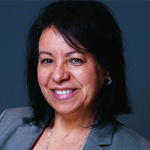We identify conditions under which the political elite may overcompensate the loss of de jure power (as a result of political reform) by investing too much in de facto power so that the probability to have de facto power is higher under democracy than under non-democracy. We show that under certain assumptions the political elites may treat democracy and spending on citizens’ education as substitutes. Based on the predictions of the model we try to examine the question of ‘why the Arab Spring Movements in North Africa followed different paths.’ We hypothesize that the interplay of political elites’ de facto power, democracy, and education can provide useful insight that may help answer the question. The model’s predictions are discussed in relation to the experiences of three North African countries, Egypt, Morocco and Tunisia).
ملخص
نحدد فى هذه الورقة الشروط التي بموجبها قد تعوض النخبة السياسية الخسارة بحكم القانون السلطة (نتيجة للإصلاح السياسي) من خلال الاستثمار في سلطة الامر الواقع بحيث أن احتمال أن يكون حكم الأمر الواقع قوة أعلى في ظل الديمقراطية عنها فى ظل اللاديمقراطية . وتبين لنا أنه في ظل افتراضات معينة قد تتعامل النخب السياسية مع فكرة الديمقراطية والإنفاق على التعليم المواطنين كبدائل. واستنادا إلى التوقعات من النموذج ، نحاول دراسة مسألة "لماذا سارت حركات الربيع العربي في شمال أفريقيا في طريق مختلف". ونفترض أن استخدام النخب السياسية لأفكار سلطة الامر الواقع، والديمقراطية، والتعليم يمكن أن توفر البصيرة المفيدة التي قد تساعد في الإجابة على هذا السؤال. وتناقش تنبؤات النموذج فيما يتعلق بتجارب ثلاثة بلدان شمال افريقيا وهى مصر والمغرب وتونس.

Research Fellows
Mina Baliamoune Lutz
Richard de Raismes Kip Endowed Professor, University...


